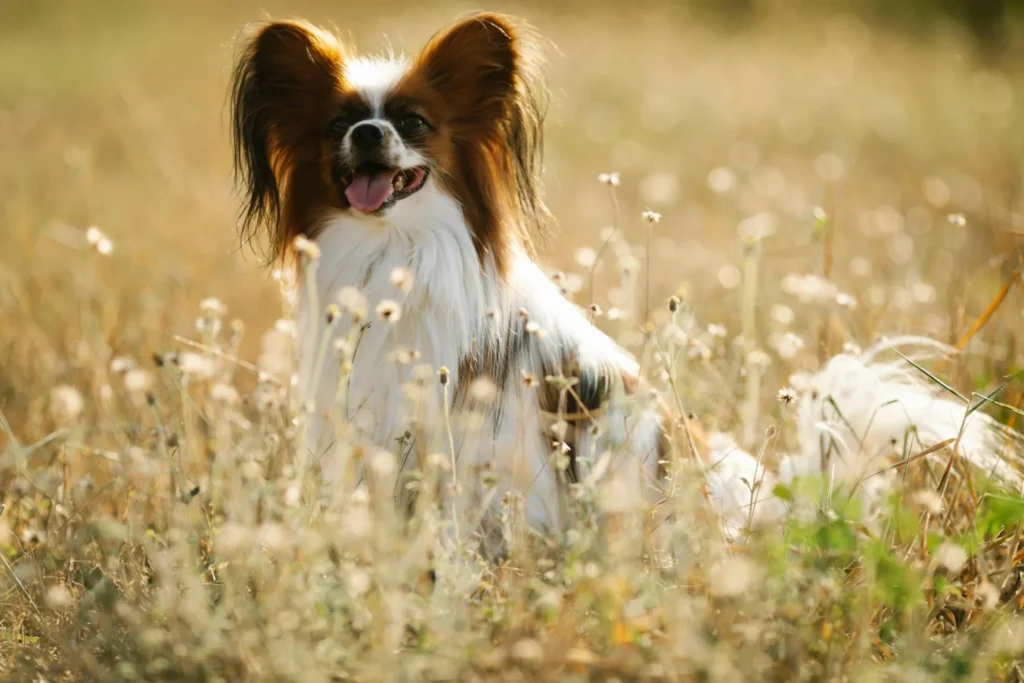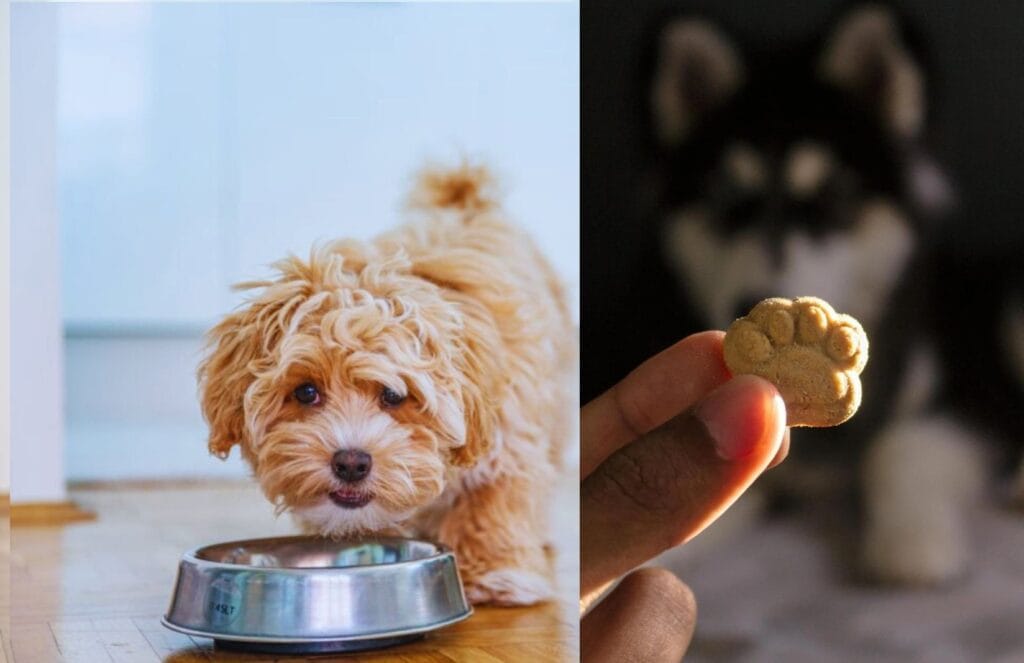Poodles are often associated with their iconic, meticulously groomed coats and regal appearance. However, these intelligent and versatile dogs are much more than just a fancy haircut. In this comprehensive guide, we’ll explore the diverse roles and capabilities of the poodle breed, shattering misconceptions and revealing their true potential as hunting companions, family pets, service dogs, and more.
Is a Poodle a Hunting Dog? 🦆
Contrary to popular belief, poodles were originally bred as hunting dogs, and their unique coat was designed to protect them from water and harsh environments. Their intelligence, agility, and retrieving abilities made them excellent partners for waterfowl hunting.
Advantages of Poodles as Hunting Dogs:
- Hypoallergenic coat (ideal for hunters with allergies)
- Excellent swimmers and retrievers
- High intelligence and trainability
- Agility and stamina for long hunting trips
Disadvantages:
- Require regular grooming to maintain their coat
- May not be as driven or intense as some hunting breeds
- Can be sensitive and may require gentle training methods
While not as commonly used for hunting today, poodles can still make fantastic hunting companions with proper training and socialization.
Is a Poodle a Good Family Dog? 🏡👨👩👧👦
Poodles are renowned for their affectionate and loyal nature, making them excellent family companions. Their intelligence and eagerness to please make them highly trainable, and their hypoallergenic coats make them a great choice for families with allergies.
Advantages of Poodles as Family Dogs:
- Intelligent and eager to please
- Hypoallergenic coat (ideal for families with allergies)
- Affectionate and loyal
- Adaptable to various living situations
Disadvantages:
- Require regular grooming and exercise
- Can be prone to separation anxiety
- May be too energetic for some families
With proper socialization, training, and exercise, poodles can thrive in family environments, forming strong bonds and providing endless companionship and joy.
Is a Poodle a Good First Dog? 🐶🏅
Poodles can make excellent first dogs for experienced owners who are willing to invest time and effort into their training and grooming needs. However, they may not be the best choice for first-time owners who are unprepared for their high energy levels and grooming requirements.
Advantages of Poodles as First Dogs:
- Highly intelligent and trainable
- Hypoallergenic coat (great for first-time owners with allergies)
- Adaptable to various living situations
Disadvantages:
- Require extensive grooming and exercise
- Can be sensitive and may require patience during training
- May develop separation anxiety if not properly socialized
With proper research, preparation, and commitment, poodles can be wonderful first dogs for dedicated owners willing to provide them with the care and attention they deserve.
Is a Poodle a Working Dog? 👷♀️🛠️
Poodles are not only beloved family companions but also highly capable working dogs. Their intelligence, trainability, and versatility make them suitable for various roles, including service dogs, therapy dogs, and even circus performers.
Advantages of Poodles as Working Dogs:
- Highly intelligent and eager to learn
- Hypoallergenic coat (ideal for service and therapy work)
- Adaptable to various environments and tasks
Disadvantages:
- May be too sensitive for certain high-stress jobs
- Require regular grooming and exercise
- Can be prone to separation anxiety if not properly socialized
With their remarkable intelligence and trainability, poodles excel in various working roles, from guiding the visually impaired to providing comfort and emotional support as therapy dogs.
Is a Poodle a Hypoallergenic Dog? 🤧😷
One of the most sought-after traits of poodles is their hypoallergenic coat. Unlike many other breeds, poodles have a single-layer coat that produces minimal shedding and dander, making them a popular choice for people with allergies.
Advantages of Poodles as Hypoallergenic Dogs:
- Minimal shedding and dander production
- Ideal for families with allergies or asthma
- Reduced risk of triggering allergic reactions
Disadvantages:
- Still require regular grooming to maintain their coat
- No dog breed is truly 100% hypoallergenic
While no dog breed can be considered entirely hypoallergenic, poodles are among the best options for those with allergies or sensitivity to pet dander and shedding.
Is a Poodle a Good Pet? 🐕❤️
Poodles make wonderful pets for owners who are willing to commit to their grooming, exercise, and training needs. Their affectionate nature, intelligence, and hypoallergenic coats make them highly sought-after companions.
Advantages of Poodles as Pets:
- Highly intelligent and trainable
- Affectionate and loyal
- Hypoallergenic coat (ideal for owners with allergies)
- Adaptable to various living situations
Disadvantages:
- Require regular grooming and exercise
- Can be prone to separation anxiety
- May be too energetic for some owners
With proper care, socialization, and training, poodles can thrive as beloved family pets, providing endless companionship, love, and loyalty.
Poodle Varieties: A Comparison 📊
Poodles come in three distinct sizes: Standard, Miniature, and Toy. While they share many traits, there are some differences to consider when choosing the right size for your lifestyle.
| Variety | Height | Weight | Grooming Needs | Energy Level | Suitable for |
|---|---|---|---|---|---|
| Standard Poodle | Over 15 inches | 40-70 lbs | High | High | Active families, hunting, service work |
| Miniature Poodle | 10-15 inches | 15-17 lbs | Moderate | Moderate | Apartments, families with children |
| Toy Poodle | Under 10 inches | 6-9 lbs | High | Moderate | Apartments, seniors, travel companions |
Regardless of size, all poodle varieties share a hypoallergenic coat, high intelligence, and affectionate nature, making them excellent companions for the right owners.
FAQs
Q: Do poodles shed a lot?
A: No, poodles are known for being a hypoallergenic breed with minimal shedding. Their single-layered coat produces very little dander, making them an excellent choice for people with allergies.
Q: How often do poodles need to be groomed?
A: Poodles require regular grooming every 4-6 weeks to maintain their distinctive coat. Their curly hair is prone to matting and tangles, so frequent brushing and trimming are necessary.
Q: Are poodles good with children?
A: Yes, poodles are generally good with children, especially when socialized and trained properly from a young age. Their affectionate nature and patience make them great family companions.
Q: Are poodles easy to train?
A: Poodles are highly intelligent and eager to please, making them relatively easy to train. Consistent, positive reinforcement training methods work well with this breed.
Q: How much exercise do poodles need?
A: Poodles are active dogs and require daily exercise to stay healthy and happy. Standard poodles have higher exercise needs than miniature and toy varieties, but all sizes benefit from daily walks, playtime, and mental stimulation.
Q: Are poodles good watchdogs?
A: While not traditionally bred as guard dogs, poodles can make decent watchdogs due to their intelligence and loyalty. They are generally alert and will bark to alert their owners of potential threats.
Q: Do poodles get along with other pets?
A: Poodles can get along well with other pets, especially when socialized from a young age. Early socialization and training are key to ensuring a positive relationship with other animals in the household.
Q: Are poodles high-maintenance dogs?
A: Poodles do require a higher level of maintenance compared to some other breeds, mainly due to their grooming needs. Their curly coat requires regular brushing, trimming, and bathing to maintain its appearance and prevent matting.
Q: Are poodles good apartment dogs?
A: Miniature and toy poodles can make excellent apartment dogs due to their smaller size and moderate exercise needs. Standard poodles may be better suited for homes with larger living spaces and access to outdoor areas for exercise.
Q: How long do poodles live?
A: The average lifespan of a poodle is 12-15 years, with smaller varieties often living longer than their standard counterparts. Proper care, nutrition, and regular veterinary check-ups can help poodles live long, healthy lives.
Conclusion: The Versatile Poodle 🌟
Poodles are far more than just fancy haircuts; they are intelligent, versatile, and remarkable companions. From their hunting roots to their roles as service dogs, therapy animals, and beloved family pets, poodles continue to showcase their adaptability and unwavering loyalty.
Whether you’re drawn to their hypoallergenic coats, trainability, or affectionate nature, poodles have something to offer for a wide range of lifestyles and needs. By understanding their unique traits and capabilities, you can determine if a poodle is the perfect addition to your family.
Remember, owning a poodle requires a commitment to regular grooming, exercise, and training. But for those willing to invest the time and effort, these remarkable dogs will repay you tenfold with their intelligence, companionship, and undying devotion.
So, if you’re ready to embark on a journey filled with love, loyalty, and perhaps a few fancy haircuts along the way, consider welcoming a poodle into your life – you won’t be disappointed! 🐩💕



